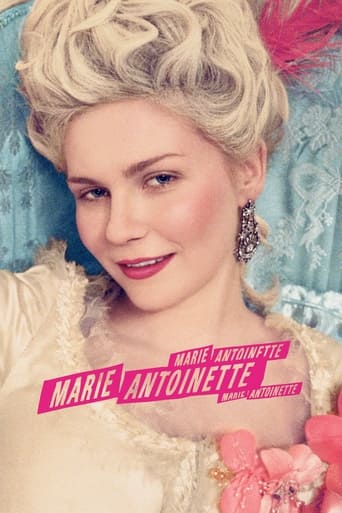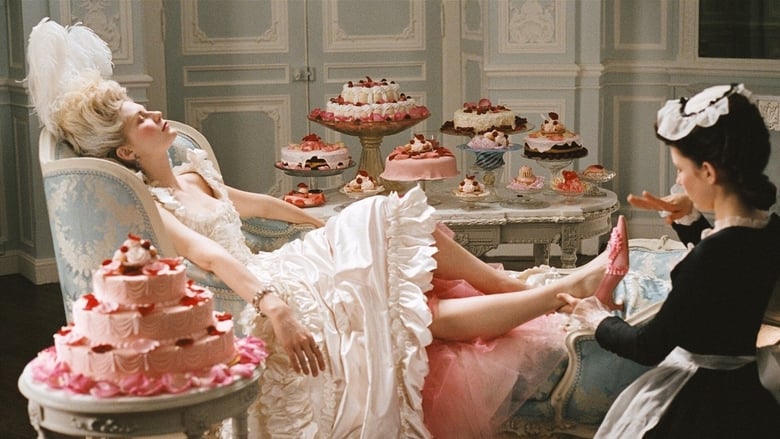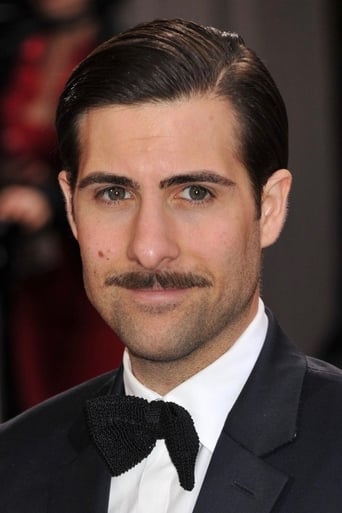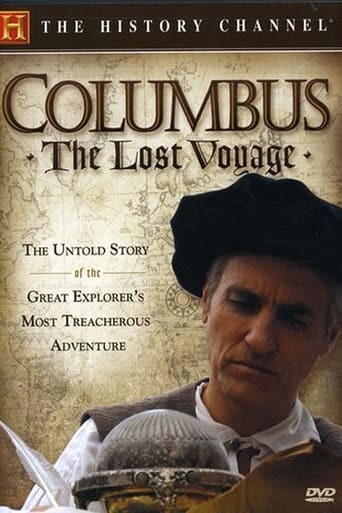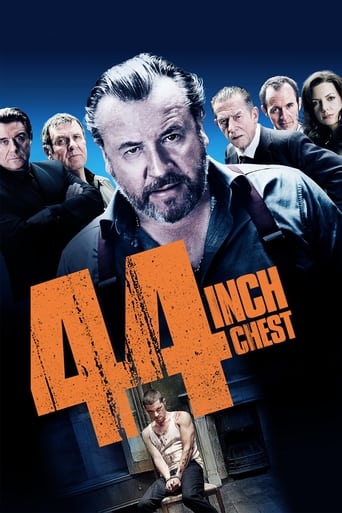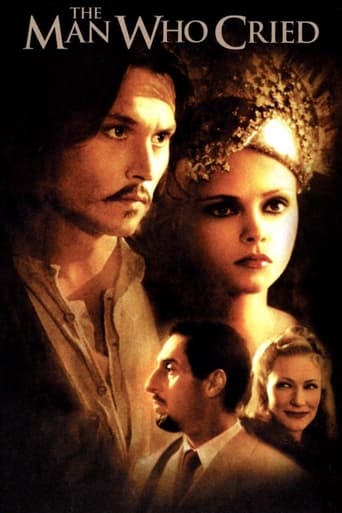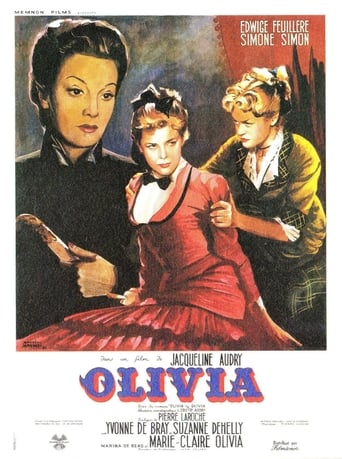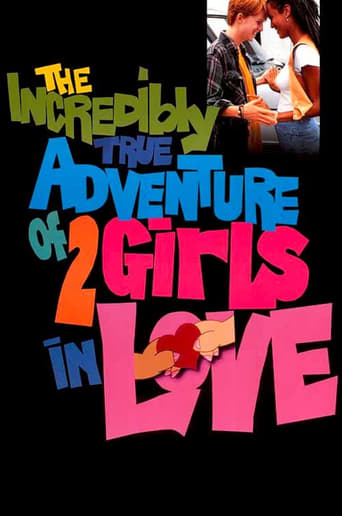Marie Antoinette (2006)
An Austrian teenager marries the Dauphin of France and becomes that country's queen following the death of King Louis XV in 1774. Years later, after a life of luxury and privilege, Marie Antoinette loses her head during the French Revolution.
Watch Trailer
Cast
Similar titles
Reviews
So much average
It’s fine. It's literally the definition of a fine movie. You’ve seen it before, you know every beat and outcome before the characters even do. Only question is how much escapism you’re looking for.
Not sure how, but this is easily one of the best movies all summer. Multiple levels of funny, never takes itself seriously, super colorful, and creative.
I didn’t really have many expectations going into the movie (good or bad), but I actually really enjoyed it. I really liked the characters and the banter between them.
I am a huge fan of Sofia Coppola's movie the virgin suicides and so I thought surely this would be an amazing movie. No. It wasn't terrible but it lacked a lot. It didn't really dive into much of the history of Marie Antoinette and it didn't deliver the full story at the end either which was disappointing. If I watch a movie based on a historical event, I want to see the key points of the story unfolded. This movie focuses mainly on their marriage and the rumor of the couple remaining abstinent for the first seven years of their marriage and it focuses a lot on the queen's spending and gambling problems and her party lifestyle. It needed so much more to complete the story!
One of films seductive more for details, rooms, clothes, location than for story itself. and, knowing the historical events or discovering them , the film has the virtue to be a decent and charming sketch of a period, proposing a perspective, superficial at first sigh, in same measure nice, story of the transformation of a girl in young woman, using the humour as significant ingredient and giving the right end as bridge to the tragedy of the Revolution. an easy film, for teenagers, who remains impressive for the insides , for the art to use the fragments of history, for Kirsten Dunst performance, for the flavours of the life of a princess in different universe and her decisions, so familiar for young women. so,, a beautiful film. the use of different music styles is one of precious arguments.
This movie might upset people who dig in to this movie of historical intentions but that is not what you should look for when you watch this beautifully shot movie. Lance Acord who has worked with Coppola on her debut short "Lick the star" (1998) and her Oscar winning "Lost in translation" (2004) make a beautiful movie together. The costumes, the scenery, the light, the photography - wonderful, mesmerizing. This film is more like visionary poetry than historical. When you watch a Sofia Coppola movie you should now her thin dialogue because she wants the pictures to tell you a story than words. I can't praise this movie enough it's so wonderful and I like how she had silent scenes where you her the sound of nature instead of music and I also like how she used modern music instead of classical music of Antoniettes time which gave the movie a very nice, atmospheric edge to it. Visual poetry is what this movie is all about!
One of the few responsibilities of Queen Marie Antoinette sees her made to pose, abide by tradition and simper as she decorates war heroes with flowery laurels and allows them the unique privilege of bowing in her presence and giving tribute to their gracious rulers. Usually there's two ways to go about a period piece like this: you take it on with complete sincerity, you ask the actors to speak with the appropriate accent (which is never American), and maybe you win a few Oscars. Or you could attack the source itself and make a mockery of this posturing; history was never as genteel and refined as it is in the movies, so why pretend? The aforementioned scene is a perfect opportunity for the latter, given the frivolous nature of her role in these proceedings. Instead it's the setup for her later affair with the dashing Axel Fersen - they feel a connection at first glance, and later make googly eyes at each other over the table. It's like high school all over again. Marie Antoinette, Sofia Coppola posits, was not that much different than your average teenager of today, and has the immaturity and lack of self-awareness to match. She starts trends (clapping at the theatre) and then later is astounded that she's no longer 'in', her flash in the pan popularity a thing of the past. She brushes off the local gossip as if her status is impervious to its slander. Watching the film is like walking into a giant box of Ladurée macarons, with the pale pastel colours turned to eleven, and giants hands to give it a good shake. Certain sections wouldn't be out of place in a music video, with its giggly irony, bundled anachronisms and the rebellious streak of Bow Wow Wow and The Strokes. It's not just a phase.Simultaneously Coppola wants to draw out the existential angst of being imprisoned by the materialism of the royal position, but there's little desperation or awareness under the surface. Her life is portrayed as one of fanciful bliss, naivety and ignorance of the political and social turmoil that swept her country at the time. This premise of juvenile insularity and stylistic extravagance to match it might have worked as a short film, with some well-directed irony and a thunderclap of a denouement. But Coppola insists on drawing it out over two hours, in which the historical timeline ticks on but Dunst gains no extra wisdom or insight. Coppola tries to find cruel inhumanity beneath the lavish artifice; see the initial procedures Marie Antoinette undergoes, brutally 'stripped' of her Austrian roots, her femininity revoked, her role reduced to an asset instead of a woman. But observe how fragile the film's treatment of this process is, and how delicately the camera is sure to respect Dunst's no-nudity clause. Compare this to a film like The Scarlet Empress, where Marlene Dietrich's wide-eyed Sophia is groped and inspected like a package upon arrival in Moscow, only for her to later rise from the ashes and become a powerhouse. There's no phoenix rebirth here - Coppola's more concerned about Dunst losing her puppy instead of her identity and childhood. This is typical of much of Sofia Copppola's films, so intent on uncovering the humanity behind the rich and privileged that they gain tunnel vision and forget about everyone else, and forgo sympathy for their cause (given her past, it's a deeply personal concern). The film conveniently avoids elaborating on the rest of her life - the struggles of motherhood and losing her children young, her gradual push into the political court, urging her husband to take on the revolutionaries - because that would invalidate her little fantasy. Dunst is as good as this vision allows her, callow and casually American in a French court. Schwartzman has the same accent but is more intriguing as the young king thrust onto the throne and made to learn on the go. His timid, laconic performance is quietly subversive of the real Louis XVI: you can imagine God proclaiming divine right in one of Schwartzman's dreams, only for him to ask, "Are you sure?"If Coppola was a little braver she might have gone for the jugular and shown her execution, utilise it as a violent counterpoint to Marie Antoinette's self-contained fantasy. But even delivering consequence the film is revising history, softening events, letting characters off the hook. Recall how every beat in Kubrick's Barry Lyndon is staged to poke fun at the logic and sheen of his imagined historical epic (the unmade Napoleon), and then you will see how little self-awareness Marie Antoinette has in comparison. It positions itself as ironic, but in reality it is as shallow as its eponymous heroine.On the morning of the 5th of October 1789, an angry mob stormed the royal palace of Versailles, mounted two of the guards' heads on pikes, and gathered under the King's quarters. They called for justice, for bread, for the royal family to be placed under political arrest. The king comes out onto the balcony to attempt to bargain, and afterwards they call for the Queen. She answers their call, coming out with her eldest son Louis Joseph, but they want her alone - perhaps the sight of children threatened to satiate their bloodlust. So she bares the full fury of the mob alone, and in a remarkable and inexplicable performance, she calms them. Now they cry, "Vive la Reine! Long live the queen!" Now, isn't this infinitely more interesting than a giggly, infantile schoolgirl?
